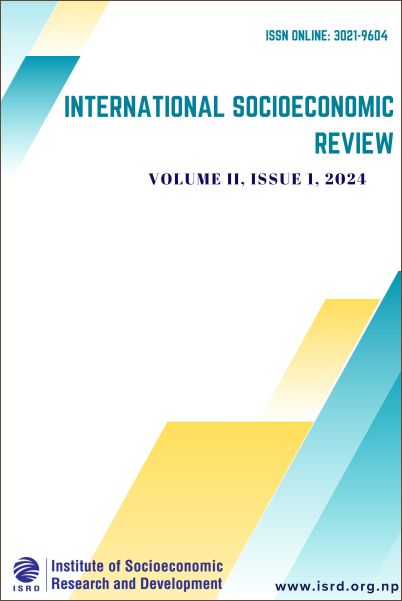Contentment to Commitment: Analyzing the Mediating Role of Financial Well-Being in Ginhawa and Young Adult’s Desire to Have Children
DOI:
https://doi.org/10.3126/iser.v2i1.75231Keywords:
Financial Well-Being, Desire to have children, GinhawaAbstract
Financial status, well-being, and efforts are the pillars considered when building a family of their own. Understanding how these aspects are essential in building a family in the future can be beneficial in the growth of one’s life stability. The researchers found knowledge gaps about the influence of "Ginhawa" on the desires of young adults to have children, and how financial well-being mediates or influences the relationship between young adults' desire to have children and their level of "Ginhawa". The main objective of the study is to examine the relationship between the desire to have children and "Ginhawa", while also considering the potential mediating effect of financial well-being on this relationship, which allows for a more nuanced understanding of the factors influencing the well-being of Filipino young adults in the context of their family planning desires. Data were collected through surveys and analyzed utilizing media-tion analysis. The analysis revealed that with a p-value of 0.039, "Ginhawa" and the desire to have children have a significant relationship. However, with a p-value of 0.058, financial well-being does not mediate this relationship. These findings suggest that although "Ginhawa" is evident to be a strong predictor of the childbearing intentions of young adults, financial well-being does not mediate the relationship significantly. This reflects that family planning among young adults is more a concern for their overall well-being than for their financial stability. Subsequently, plans for having children are dictated largely by their sense of well-being, regardless of their financial stability.
Downloads
Downloads
Published
How to Cite
Issue
Section
License
Copyright (c) 2024 International Socioeconomic Review

This work is licensed under a Creative Commons Attribution 4.0 International License.
This license enables reusers to distribute, remix, adapt, and build upon the material in any medium or format, so long as attribution is given to the creator. The license allows for commercial use.




